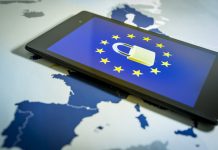Paul De Raeve, Secretary General of the European Federation of Nurses Associations (EFN), blockchain-based technologies for sustainable EU healthcare ecosystems
The European Commission has published a Recommendation on the development of European Electronic Health Records (EHR) exchange format that would facilitate citizens access their information electronically and securely across all European Union (EU) Member States. Technologies that exchange data from different sources and formats and have different groups of end-users are the ones that will drive the future EHR developments at scale. Within this context, blockchain is becoming more part of the healthcare ecosystem and processing lifetime personal health data at the fingertips of end-users. Blockchain’s ability to secure patient’s data ( in line with the EU’s General Data Protection Regulation, a.k.a. GDRP), making the supply chain transparent and giving EHR a new EU cross-border dimension, attract professional attention, especially when cross-border care, continuity of care and integrated care are being discussed and researched.
The blockchain market
Whenever a new technological innovation occurs, the healthcare sector is often considering how to benefit from it, also due to its large market size. That is the predisposition of healthcare professionals and nurses, in particular, to embrace new technologies that would make healthcare ecosystems more efficient, improving the quality and safety of planned and delivered care and empowering citizens (i.e., prevention) and patients (i.e., care and cure) to better manage their own health. In this context, blockchain solutions are arising. However, they are still perceived by many, probably the competitors, as a hype. So, the main question is: Can blockchain move things forward and strengthen the development and deployment of continuity of care?
Blockchain added EU value for health and social care ecosystem
Blockchain has many characteristics that make it unique. However, three of them make it particularly useful for the healthcare ecosystem (World Economic Forum, 2019, p.7). These are full traceability of any information on the blockchain, the ability to ensure data has not been tampered with and increased security.
Blockchain provides a holistic view of the transaction and serves as a single source of truth – meaning that all stakeholders can see the same information to which they have access. Also, there is no single entity of data ownership because consensus is applied to all transactions (ibid., pp. 7, 8).
When it comes to nursing care, the citizen/patient owns his/her health data and not the healthcare provider and the citizen gives consent to his/her provider to add and/or modify the health data. As such, a key difference is the provider of services can never own any data, which is key for citizens and patient empowerment.
Blockchain opportunities in the healthcare sector
There are many ways blockchain technology can improve the design and deployment of EHR, in the EU and beyond. For example, blockchain can be used to foster interoperability (Carter et al, 2019, pp. 3-5). As argued before, blockchain can improve the security of EHR, encouraging redistribution of the available resources from administrative burden towards direct patient care (Carter et al, 2019, p. 5).
Blockchain technology has the potential to store consent as part of the patient’s EHR, meaning that the administrative burden could be reduced to the bare minimum (ibid., p.2) and hence, reallocate resources towards direct patient care.
Furthermore, from a clinical perspective, blockchain could be of high value in the development of primary and community care. Optimising clinical pathways through blockchain and artificial intelligence (AI) are great opportunities for the nursing profession to process and to store nurses’ activities/actions as well as monitoring the data that continuously feed into the nursing care process.
Blockchain GDPR compliance
The EU’s General Data Protection Regulation (GDPR) sets the new minimums for data privacy protection and security in the EU countries. Ever since its adoption, profound changes have occurred across companies and stakeholders in the healthcare sector to be compliant with this new set of rules.
IBM (2018) has published a White Paper on the matter, concluding that GDPR implies that data protection should be designed into the deployment of blockchain by default. If that is done, blockchain implementation should not be a problem for healthcare providers. In their paper, they divide GDPR compliance into five different areas: Rights of EU Data Subjects; Security and Processing; Lawfulness and Consent; Accountability of Compliance; and Data Protection by Design/by Default and demonstrate how blockchain technology can be compliant with them all. Moreover, blockchain’s built-in “audit-trail” can is an advantage for healthcare providers and professionals to prove who has accessed the citizens/patient’s data, where and when
Concluding remarks
Blockchain technology has great potential for transforming the healthcare ecosystem in the EU, boosting the development and implementation of EHR. However, new technologies often present a learning curve, as there is a certain degree of literacy needed to work with them. This is a challenge for the already overwhelmed healthcare sector frontline staff and particularly for the nurses who coordinate the continuity of care 24 hours on 24hours, seven on seven days, 365 days a year. The major benefit of blockchain overall is that it brings trust and security to a digital world that needs it. That is, blockchain technology adds accountability and transparency for all stakeholders involved in the data exchange process and it preserves privacy and confidentiality, in line with the GDPR.
References
IBM. 2018. “Blockchain and GDPR. How blockchain could address five areas associated with GDPR compliance”. White paper. IBM Security. IBM Corporation.
Carter, Gracie; White, Denise; Nalla, Anusha; Shahriar, Hossain; Sneha, Sweta. 2019. “Toward Application of Blockchain for Improved Health Records Management and Patient Care”. Blockchain in Healthcare Today.
World Economic Forum. 2019. “Building Value with Blockchain Technology: How to Evaluate Blockchain’s Benefits”. White paper.
European Commission (2018) Communication from the Commission to the European Parliament, The Council, The European Economic, and Social Committee and The Committee of the Regions on enabling the digital transformation of health and care in the Digital Single Market; empowering citizens and building a healthier society. European Commission, Brussels. (Online) Available from: https://ec.europa.eu/digital-single-market/en/news/communication-enabling-digital-transformation-health-and-care-digital-single-market-empowering [Accessed 28.12.2018].











